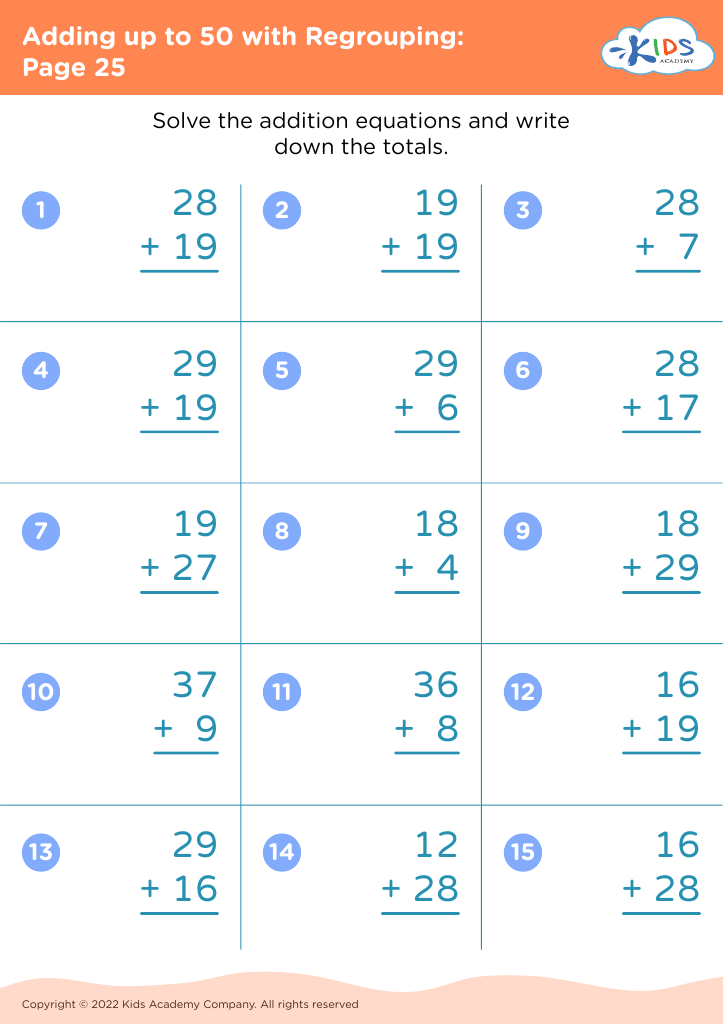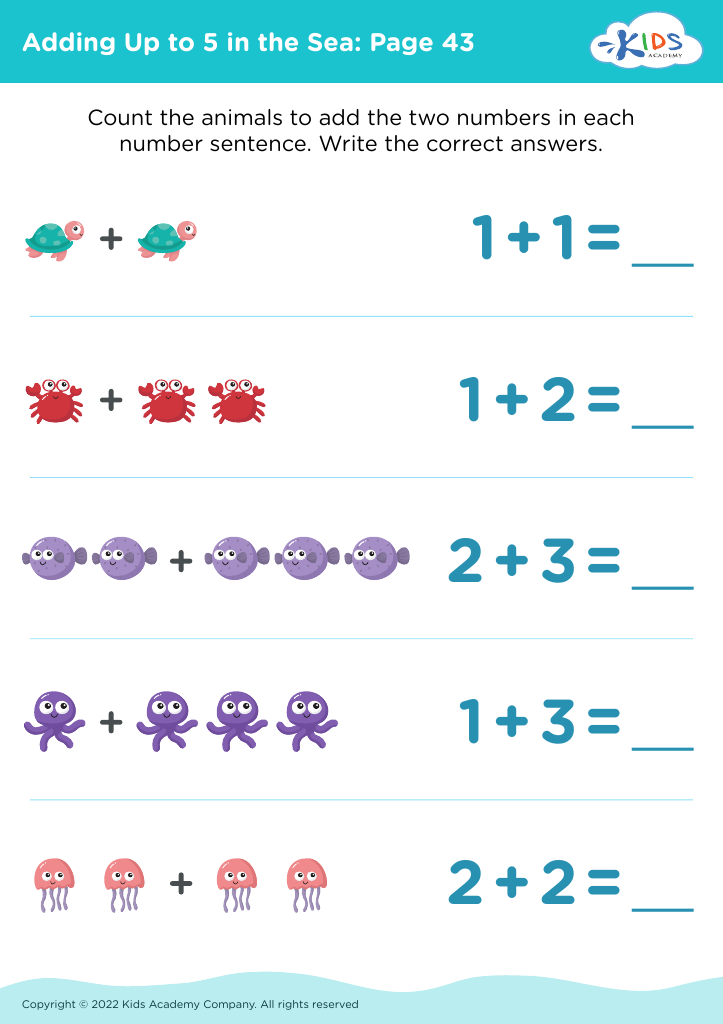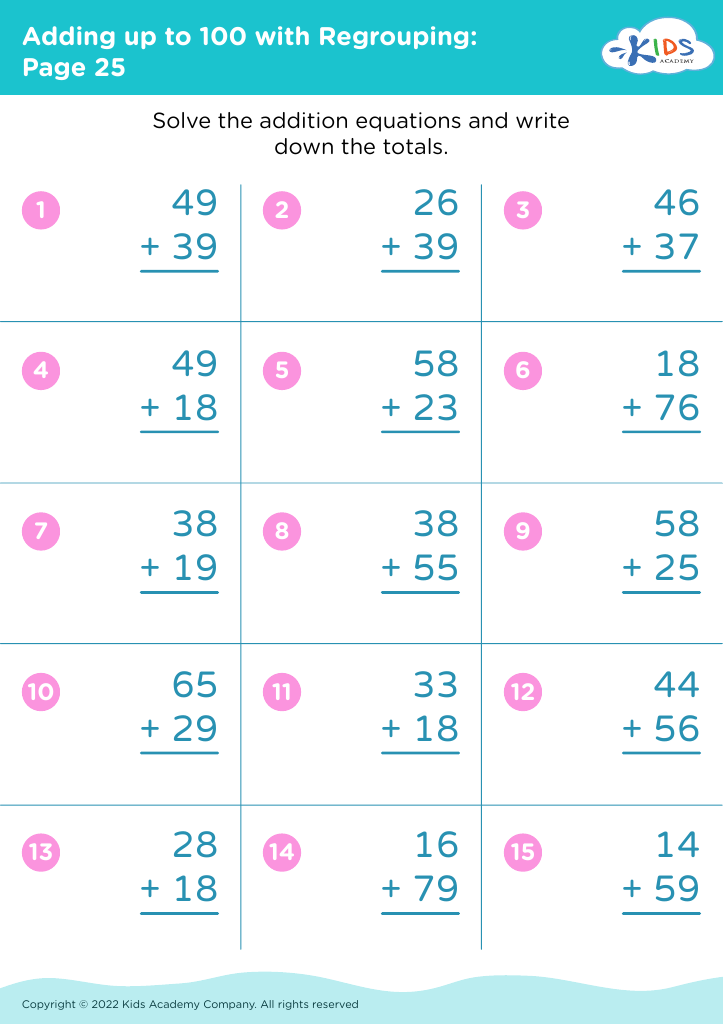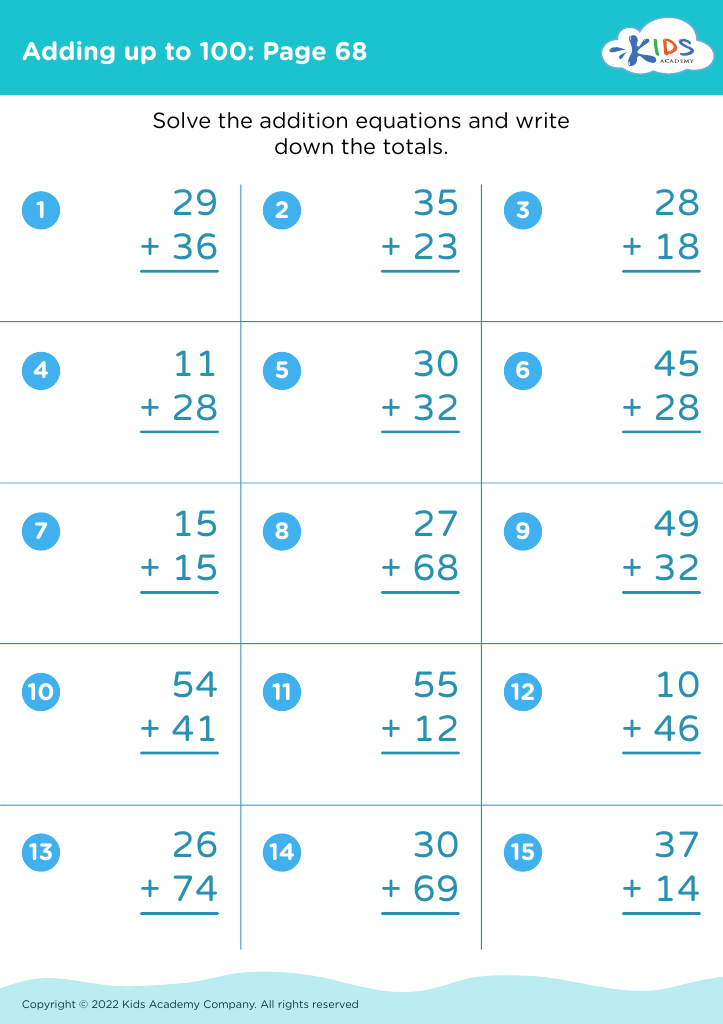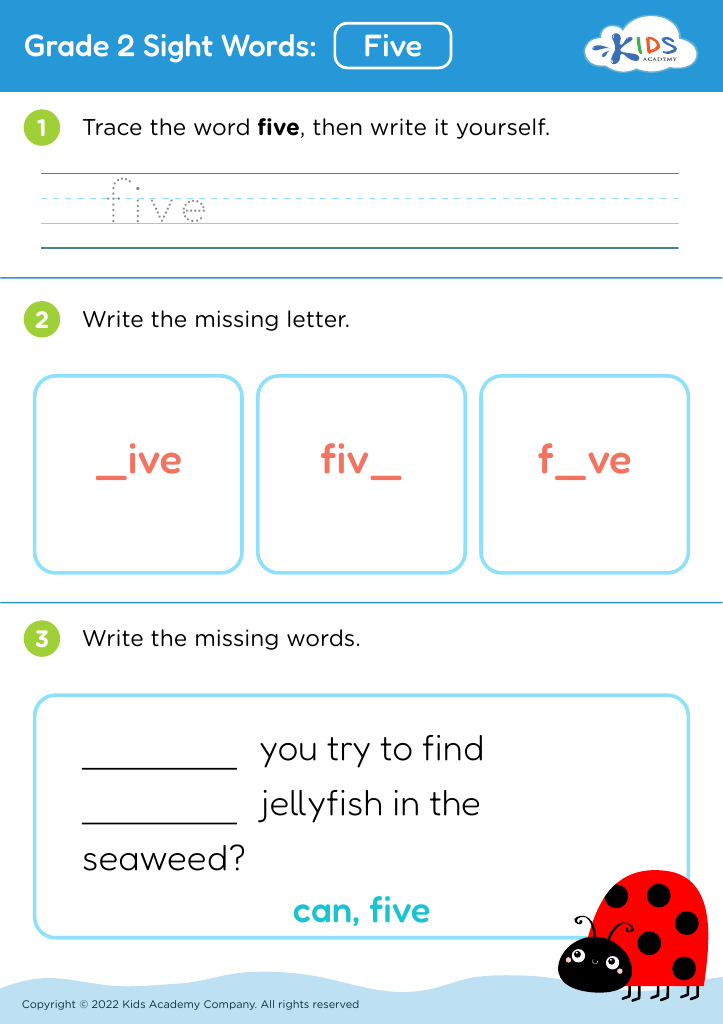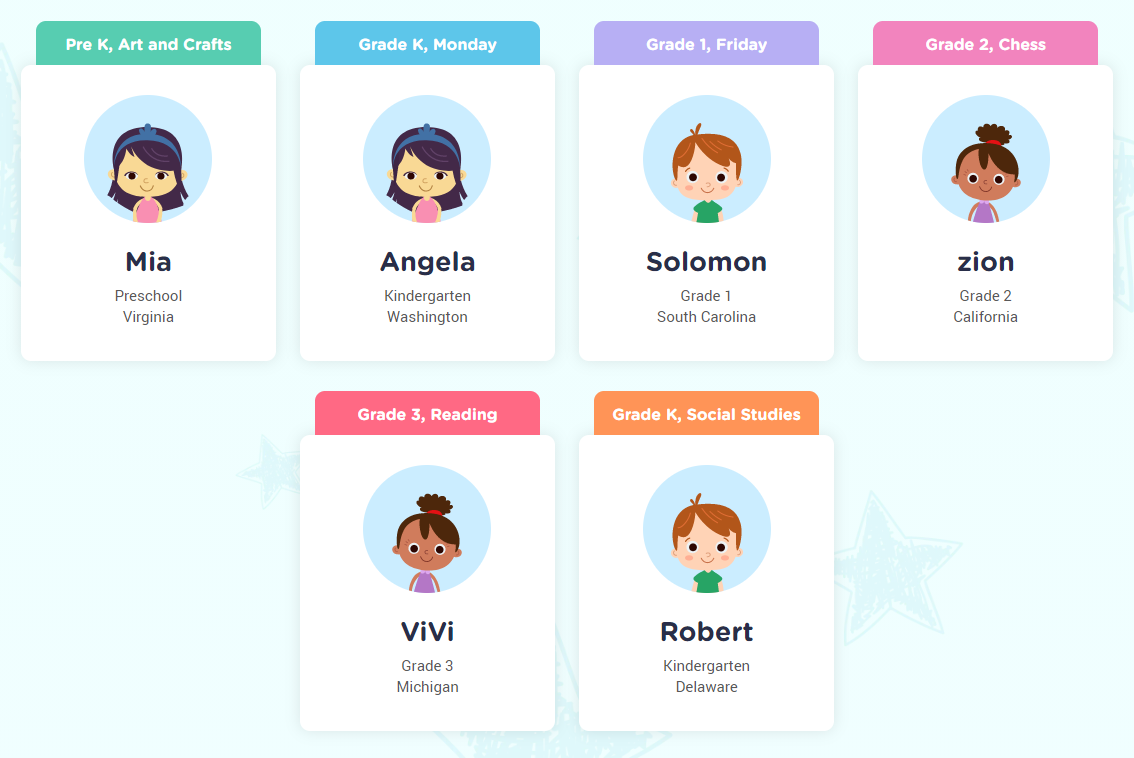Develop problem-solving skills Worksheets for Ages 5-7
10 filtered results
-
From - To
Unlock your child's potential with our engaging problem-solving skills worksheets designed for children ages 5 to 7! These printable resources help young learners develop critical thinking and decision-making abilities through fun activities and colorful illustrations. Our worksheets are tailored to support early education standards, promoting logical reasoning while enhancing creativity. Children will enjoy solving puzzles, deciphering patterns, and tackling real-life scenarios that boost their confidence in problem-solving. As they navigate challenges, they'll cultivate essential life skills that foster a growth mindset. Start your child's journey to becoming a proficient problem-solver today with our easy-to-use, interactive worksheets!
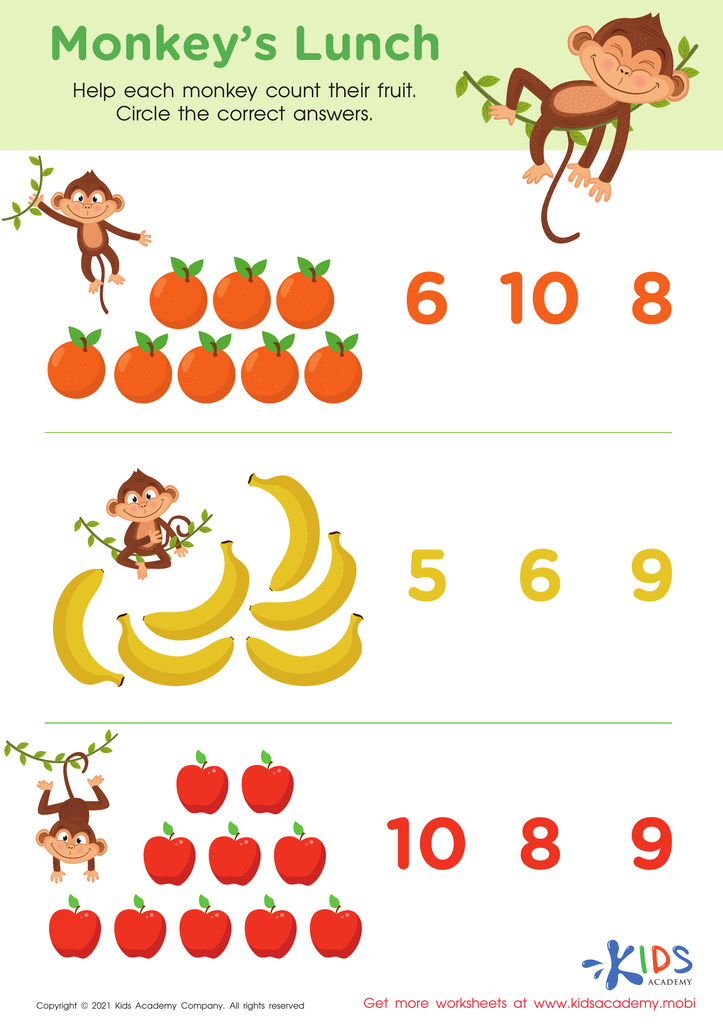

Monkey’s Lunch Worksheet
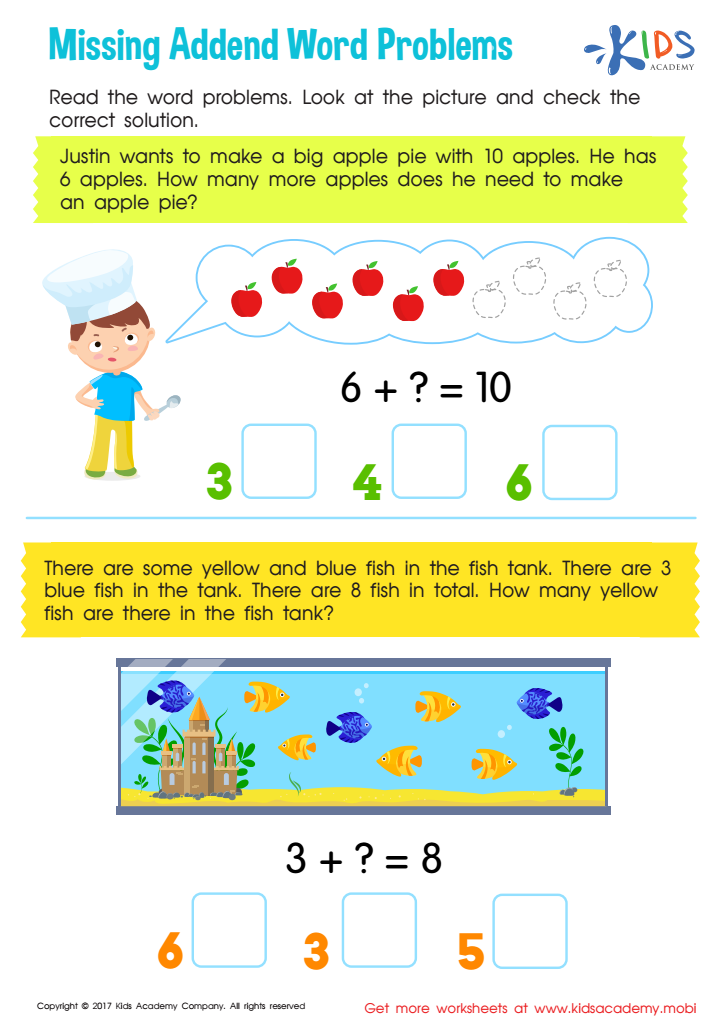

Missing Addend Word Problems Worksheet
Developing problem-solving skills in children aged 5-7 is crucial for their cognitive and emotional growth. At this stage, children's brains are highly adaptable, making it an opportune time to nurture critical thinking and analytical abilities. Problem-solving skills equip children to navigate challenges they encounter in everyday scenarios, enhancing their independence and confidence.
Parents and teachers should prioritize this development as it lays the groundwork for future learning and success. When children engage in problem-solving activities—such as puzzles, cooperative games, or real-life dilemmas—they learn to think creatively, make decisions, and adapt strategies when things don’t go as planned.
Moreover, these skills foster resilience, teaching children that it’s okay to make mistakes and learn from them. This attitude encourages a growth mindset, reducing fear of failure and promoting persistence. Additionally, good problem-solving skills are linked to improved academic performance, as children who can think critically are better equipped to tackle subjects like math and science.
Ultimately, investing time in fostering problem-solving abilities helps cultivate well-rounded, self-sufficient individuals who can collaborate, communicate, and handle life's many hurdles, benefiting their overall development long into the future.
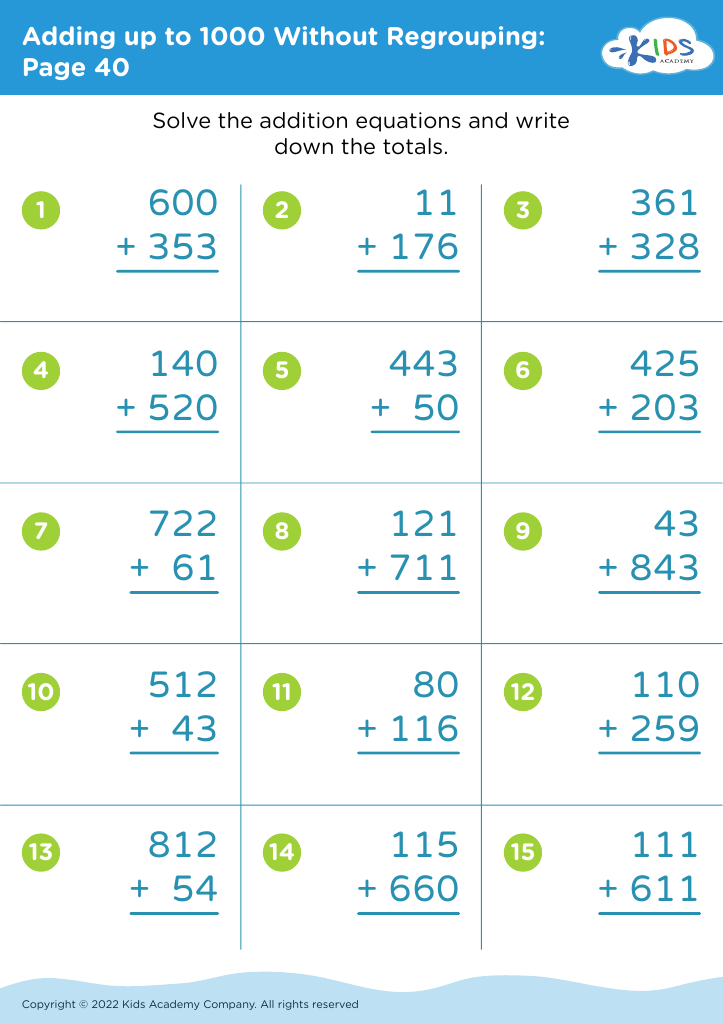
 Assign to My Students
Assign to My Students
